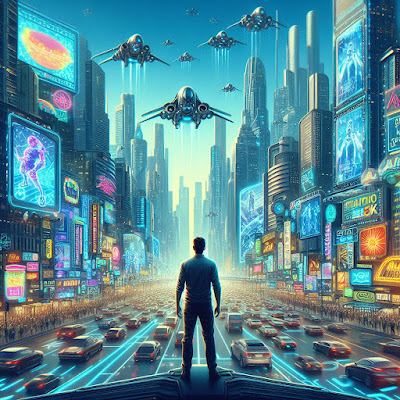*The Sixth Day*, released in 2000 and directed by Roger Spottiswoode, is a science fiction film that delves into the ethical and moral dilemmas of human cloning. Starring Arnold Schwarzenegger, the movie combines action-packed sequences with a storyline that challenges the boundaries of technology and identity.
**Plot Summary**
The film is set in a near-future world where cloning technology has advanced to the point of duplicating pets and organs, but cloning humans remains illegal. Schwarzenegger plays Adam Gibson, a family man and helicopter pilot who becomes embroiled in a conspiracy when he is illegally cloned without his knowledge. The plot thickens as Adam discovers his clone living his life, and he must uncover the truth behind the cloning company, Replacement Technologies, while dodging assassins and trying to protect his family.
**Themes and Concepts**
*The Sixth Day* explores numerous themes, including the ethical implications of cloning, the nature of identity, and the concept of self. The film questions what it means to be human and the consequences of playing god with nature. The title itself refers to the Biblical creation story, where man was created on the sixth day, drawing a parallel to the creation of life through cloning.
**Performance and Direction**
Arnold Schwarzenegger delivers a solid performance, balancing his trademark action-hero persona with moments of genuine emotion and introspection. The supporting cast, including Robert Duvall and Tony Goldwyn, provide depth to the narrative, although some characters fall into stereotypical roles. Roger Spottiswoode’s direction ensures a steady pace, maintaining tension and engagement throughout the film.
**Visual and Special Effects**
The visual effects, while somewhat dated by today’s standards, were impressive for the time and effectively depict the futuristic world. The cloning scenes, in particular, are well-crafted and add a layer of believability to the science fiction premise. The production design, with its sleek and high-tech aesthetic, immerses viewers in the not-so-distant future.
**Critical Reception**
Upon its release, *The Sixth Day* received mixed reviews. Critics praised the film’s ambition and the thought-provoking questions it raised but noted that it sometimes relied too heavily on action tropes. The movie's exploration of complex themes was seen as a strong point, even if the execution occasionally faltered.
**Conclusion**
*The Sixth Day* stands out as an intriguing entry in the science fiction genre. It effectively combines action and philosophical inquiry, providing both entertainment and food for thought. While it may not be considered a classic, its exploration of cloning and identity remains relevant. For fans of Arnold Schwarzenegger and sci-fi thrillers, *The Sixth Day* is a worthwhile watch that prompts reflection on the ethical boundaries of technological advancement.

